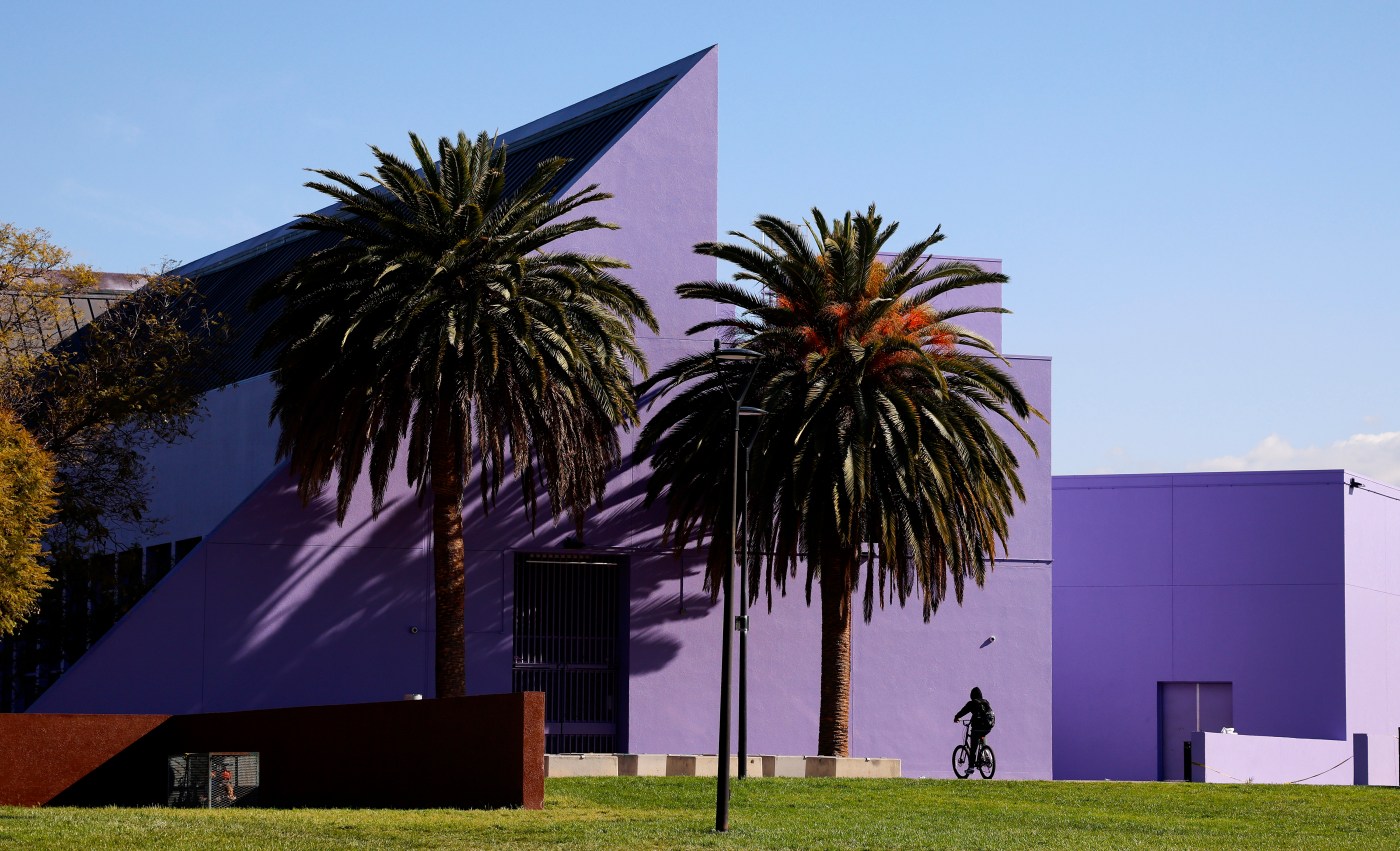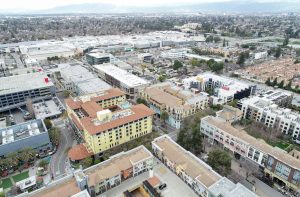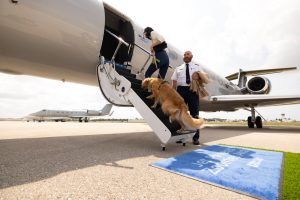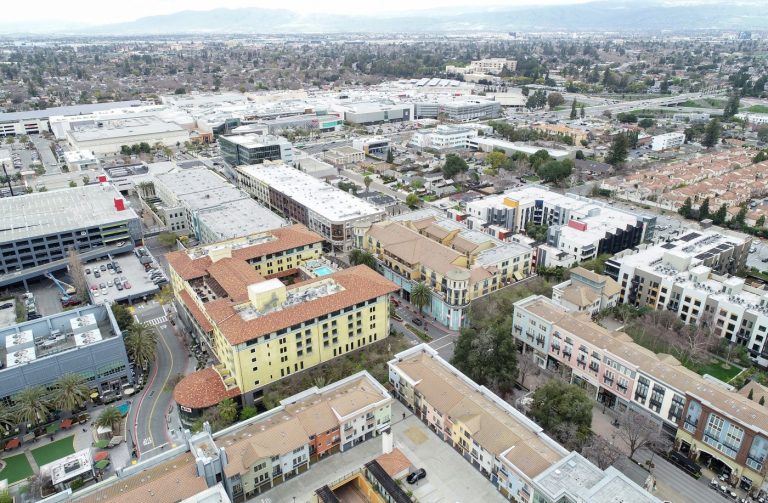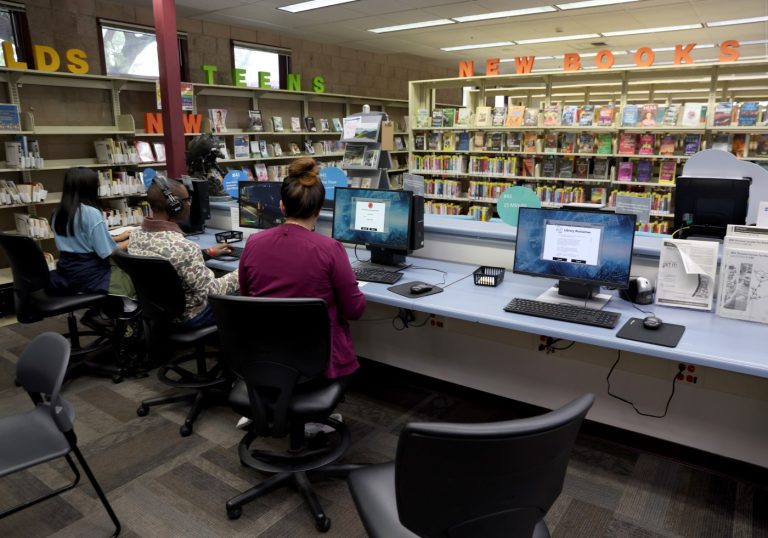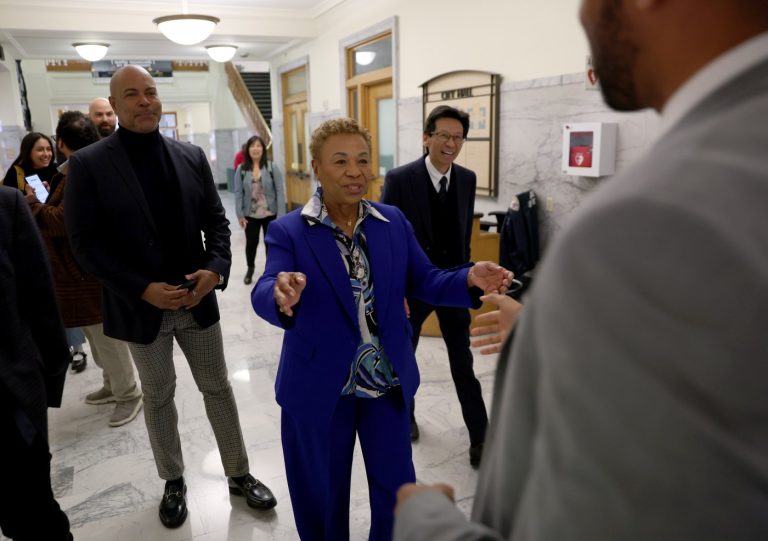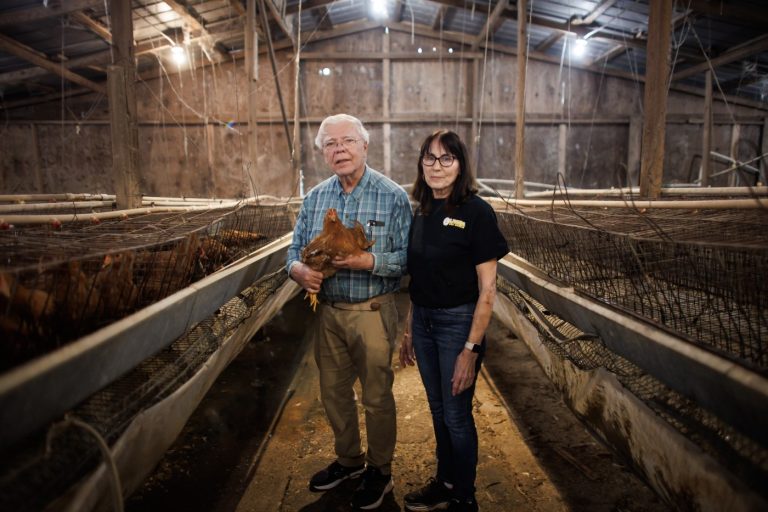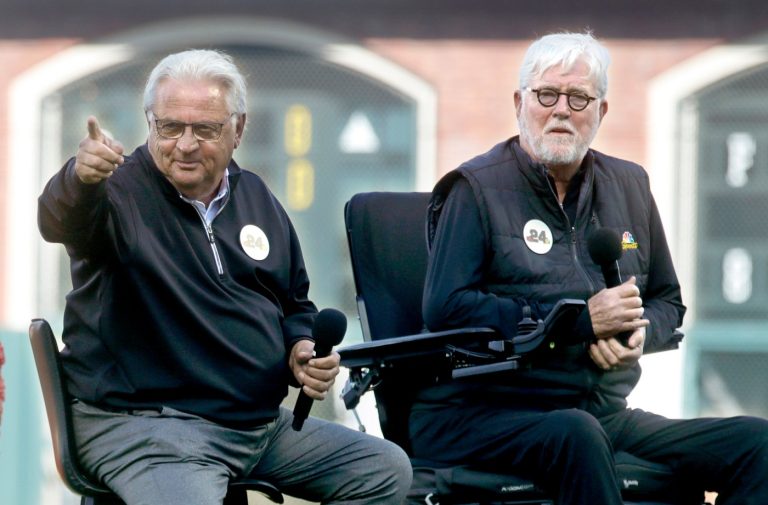Both kids and adults explored a new educational play space near downtown San Jose on Friday, turning the wheel to open up a giant solar sunflower or crawling through a set of hexagonal tubes that resembled a beehive.
The half-acre area, named the Exploration Portal, is part of the Children’s Discovery Museum of San Jose, tucked in an urban area next to the 87 Freeway and the Guadalupe River. The area, which is free to use for the public, features eight interactive exhibits meant to focus on helping children learn about patterns, proportion, scale and symmetry by combining reflecting mathematical and scientific concepts through nature.
Marilee Jennings, executive director of Children’s Discovery Museum of San Jose, said that the museum wanted the Exploration Portal to develop on concepts featured at Bill’s Backyard, an outdoor area devoted to nature explanation. Seeing that visiting families had taken interest in a beehive displayed at the museum inspired an open-ended structure of stacked hexagons that kids could climb through, she said.
Another example was the three giant Smartflowers in the area, which featured a hand crank that let people open up the petals of the flowers, exposing the inner solar panels to sunlight as a way to help kids contextualize solar power.
“It’s our philosophy that kids learn best when you allow them to explore using all of their senses,” Jennings said.
Other exhibits include Measure Me!, a measuring device to help kids learn about the ratios in their own bodies; Rocks that Sing, a short set of Xylophone-like stones that allow children to play music; and Whirling Flyers, a kinetic sculpture that makes birds fly while someone cranks a handle.
Colette Gribben, an eight-year-old girl from Oakland, played around the Measure Me! exhibit, using the rulers to measure her height. She said that she liked that there were things to climb on at the Exploration Portal.
Gribben said she also liked the Patterns Everywhere exhibit, which featured intensely magnified images of natural patterns, like the placement of seeds on a strawberry or the scales on the wings of a butterfly.
Rich Turner, director of exhibits and facilities at the museum, said that the interactive exhibits are meant to teach kids how to identify patterns and sequences and grouping, which can help them learn how to perform counting and math.
“Being able to put those simple little connections together that we take for granted but little kids, they need to learn that,” Turner said.
In addition to encouraging children to explore nature, the space had two other goals: turning the underutilized urban area next to Bill’s Backyard into an inviting and educational environment and modeling the use of sustainable materials. Various features in the portal use natural techniques to filter pollution from rainwater, replenish groundwater and highlight drought-tolerant plans and renewable wood resources.
Related Articles
Pioneering program teaches students about local watershed
Hands-on science program puts South Bay students in an outdoor classroom
“(Pollution) by the overhead freeway structures and planes flying by … needs to get filtered out of the water,” Turner said. “So the more that we can put water back into the ground rather than into the storm drains, that’s a win.”
The plans for the Exploration Portal began in 2018, but a scheduled 2021 opening was delayed by the COVID-19 pandemic. Prior to opening the area, Jennings thanked the over 200 donors for contributing to the site’s funding. Several local officials spoke about the museums efforts to make an accessible, environmentally sustainable and educational place for children.
Students from Educare, a preschool in East San Jose, were invited to play at the space and even ripped off the tarp covering the gate to the Exploration Portal. The area is expected to formally open to the public on June 29.
“I think we’re really focused on early learning, particularly in science and math,” Jennings said. “(We are) getting really little kids engaged in thinking about noticing patterns in nature and developing the skills to do that,” Jennings said.
